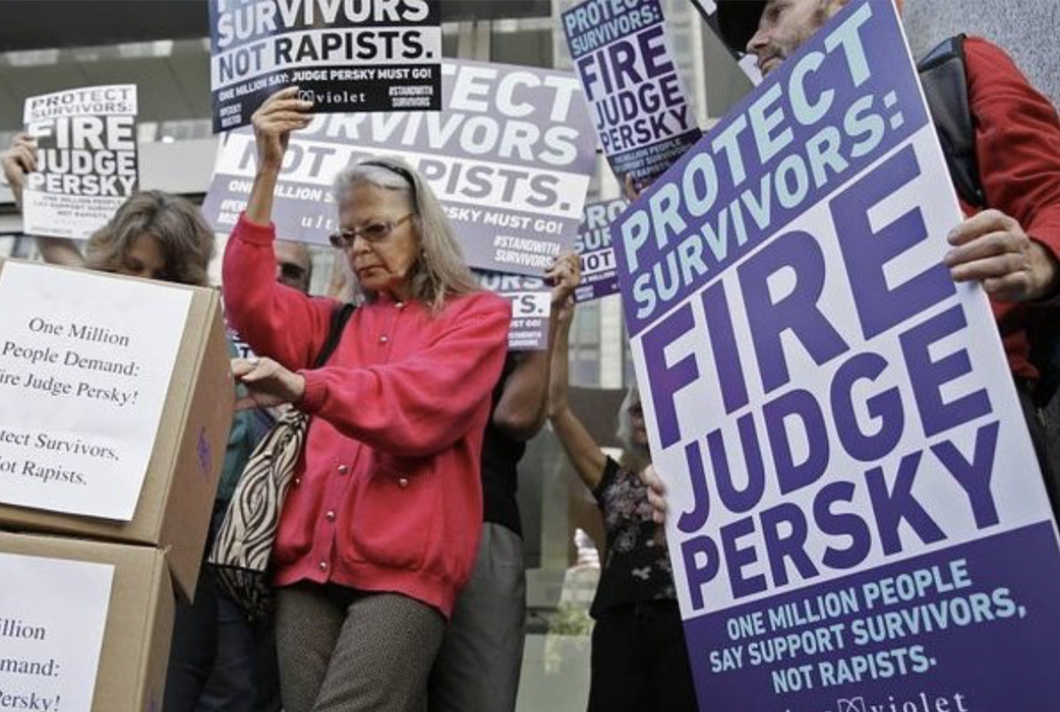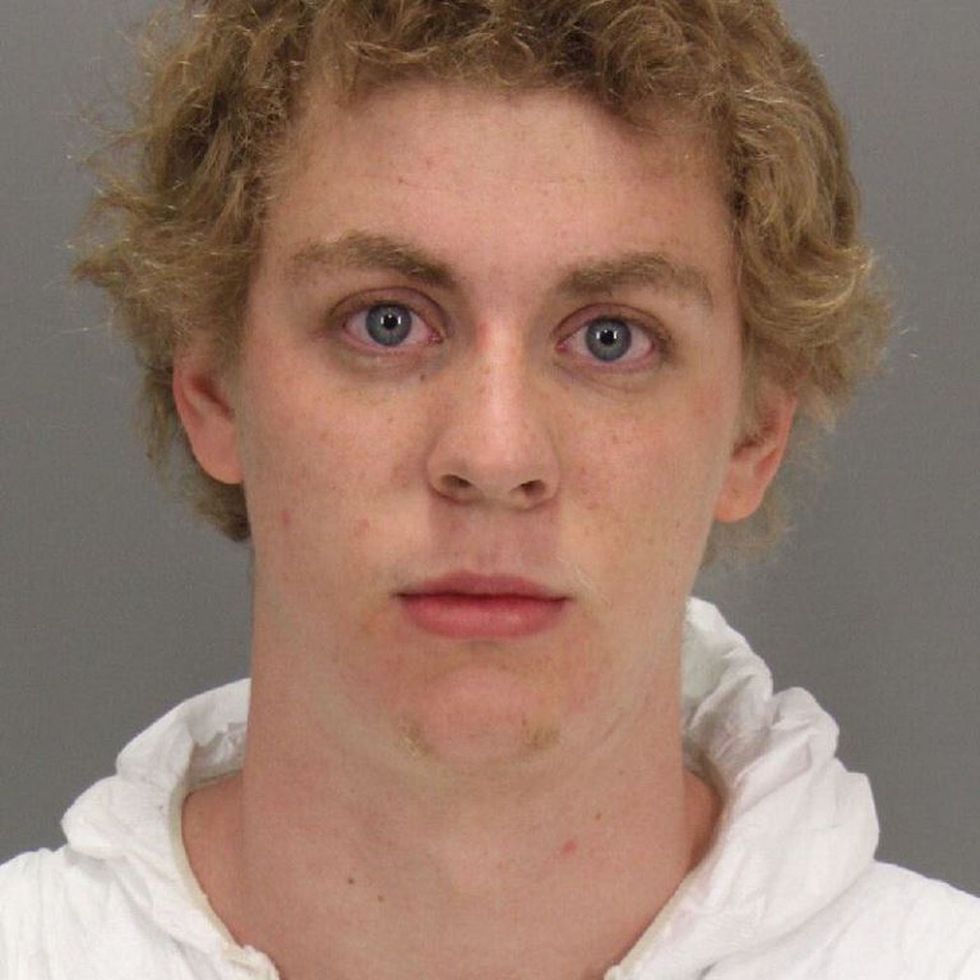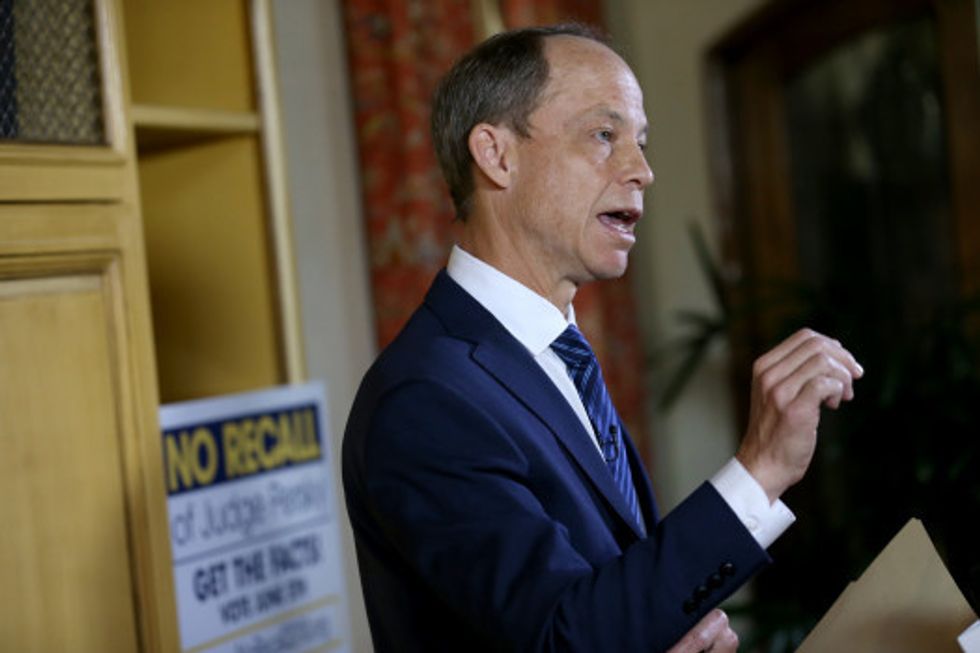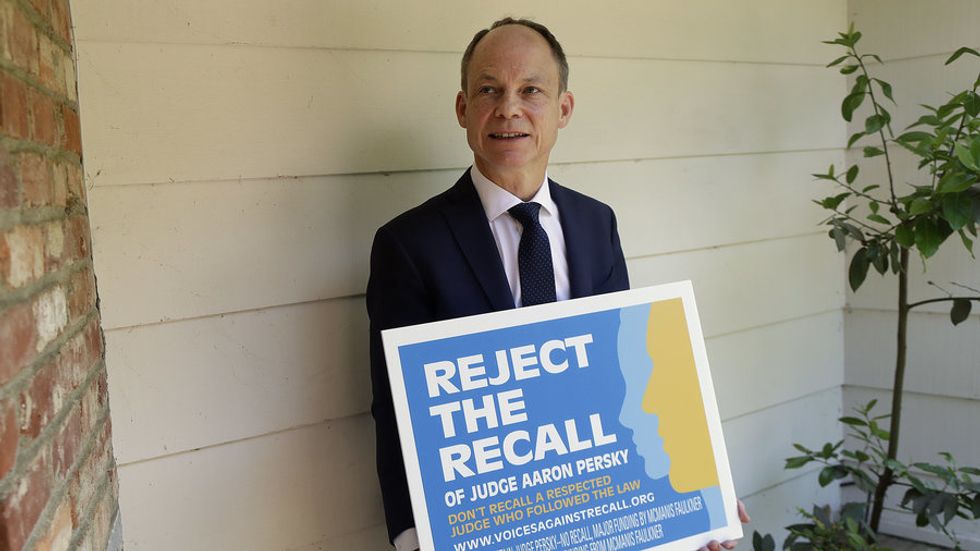In 2016, Aaron Persky, who has sat on the Superior Court of California since 2003, sentenced Brock Turner to just six months in prison (with 3 years probation) after he was found guilty on three sexual assault felony charges which should've given him a max of 14 years in jail.
The case made national headlines for more than a couple of reasons, including Turner's status as a Standford Varsity Swim Team member, Persky's over-lenient decision, and the victim's (known publically as 'Emily Doe') 7000+ word personal statement which she both published online and read aloud to her predator.
Her letter gave a vulnerable and first-hand account of her traumatic experience with not only the attack itself but also the investigation and legal procedures which followed. She cited Persky's decision as, "a soft timeout, a mockery of the seriousness of his assaults, an insult to me and all women". And she's right: Persky's decision ultimately protected the rapist over the survivor in this situation.
Persky justified his minimal sentencing by expressing his worry that a serious or intense sentence would 'severely impact' Turner, who he believed did not pose a future threat to society. To me, and I'm sure most would agree, this decision was an extreme injustice towards 'Emily Doe', towards all rape and sexual assault victims, and towards women in general.
It epitomizes a common flaw in the American judicial system that struggles to decipher the difference between wrong and white. Many critics against Persky postulate that Brock Turner's caucasian, upper-middle-class socioeconomic, and athletic status introduced a bias into Persky's controversial ruling.
If someone of a different background had penetrated an intoxicated and unconscious woman without consent like Turner had, it's not too far of a stretch to assume the punishment would've been much worse, and more worthy of the crime committed.
Michele Dauber, a law professor at Stanford and also a family friend of Brock Turner's victim, began a massive wave of anger and frustration against both the court's decision which would ultimately lead to 60% of California voters calling for Persky's recall. The movement strived to challenge the current judicial and legislative response to sexual violence crimes and call politicians and judiciary officials to take them more seriously. Four months after the court's decision against Turner, Dauber's campaign convinced California Governor, Jerry Brown, to enact a law imposing mandatory minimums in sexual assault cases and removed a 'loophole' allowing less harsh punishments if a victim was under the influence of alcohol (Chokshi). Professor Dauber and her fellow supporters of change didn't stop there.

Following the announcement of the primary election results in early June, Dauber released a statement declaring that "the voters of Santa Clara County are the winners of this election,... We voted that sexual violence, including campus sexual violence, must be taken seriously by our elected officials, and by the justice system." While, yes, a momentous action such as the early termination of a Superior Court Judge's time in office shines a legitimate light on the importance of avoiding misogynistic, racially-oriented, or power-related biases in sexual crime cases, some saw the recall as "a threat to the basic judicial independence" (Dolan, Grad).
The recall may seem like the right move following the backlash of the Turner case, but there's actually a large number of individuals against the motion. 91 California Law Professors, including 20 from Stanford (the school that Brock Turner attended but is now banned from), joined together to sign a statement of opposition.
They believe that the recall of a judge in the aftermath of such a divisive case not only promotes mass incarceration but also persuades judges to approach their cases in the future with a heightened sense of awareness and fear of the public opinion.
When new elections for judiciary positions open up, courts tend to dole out harsher and longer sentences to influence their voter approval. The group of anti-recall professors wrote in their statement that, "a fair and equitable justice system requires judges who dispassionately assess the culpability and background of offenders, without fear of public opinion, balancing the goals of retribution, deterrence, and rehabilitation."
During past election seasons, the death sentence rate increased by 15% in Chicago and 3,000 additional years of incarceration were tacked on in Pennsylvania. As far as criminal injustice goes, there's concern that these harsher and less subjective sentencing initiatives will affect a different demographic than Dauber and other advocates intended to restrict. Minorities and those less financially sufficient may be unable to attain proper legal representation or be treated unfairly because of their background.
In my opinion, Persky made a horrible decision in the Brock Turner case. Sexual assault or rape of any kind, committed by any person, is completely unacceptable and one of the most horrific acts a person can commit. It doesn't matter if you are a 'nobody', a college athlete, a first-time offender, a man, a woman, white, black, or brown: you deserve to be punished brutally for what you've done.
The justice and legislative systems should promote standards that uphold a firm unacceptance of sexual misconduct or 'rape culture' of any kind. Yes, I do understand some of the counterarguments, but I think in this example, a precedent had to be set to make up for such a huge mistake in a case that had the ammunition to be ground-breaking in the court's treatment of sexual assault.
Other Sources Used:
https://www.nytimes.com/2018/06/06/us/politics/judge-persky-brock-turner-recall.html
https://www.buzzfeed.com/katiejmbaker/heres-the-po...






















